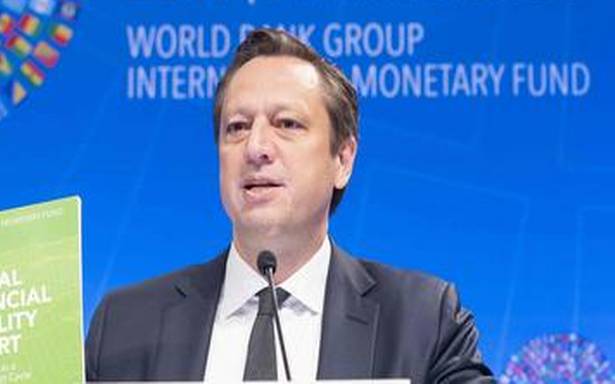India has been quite innovative on digital identity, says top official Tobias Adrian
India is on the right track and is innovating on the policy side, including on digital identity and payments, but it also needs to capture all the segments of the financial market and institutions to make sure that every piece fits together like a puzzle to fuel growth in the country, according to a top IMF official.
“The goal is to have an economy and a financial system that can absorb shocks. ..Balance sheets can be better managed, Non-Performing Loans (NPLs) can be better managed,” Tobias Adrian, Director of the Monetary and Capital Markets Department of the International Monetary Fund (IMF) told PTI in an interview.
The non-bank financial system can be better seen, and capital markets have to be deepened and made more robust, he said during the last week’s annual Spring meeting of the IMF and the World Bank. Of course, there is the whole fintech agenda as well, which is important in India as it is everywhere else in the world.
“We are in the technological revolution in payment space. And I think India has been path-breaking in many of these technologies and payment systems. Now there is lending that is done in India that is not done anywhere else because the infrastructure is quite strong in this area. But of course, more can be done,” Mr. Adrian said in response to a question.
The IMF official underscored the significance of investments into financial institutions, into oversight, and into infrastructures to ensure that the “financial system can absorb shocks and that is sustaining growth” in a long-term way.
India, he said, is on the right track and is innovating on the policy side.
“It has been quite innovative on digital identity, for example. I think no country is laying like India in that respect,” he said, noting that the country needs to capture all the segments of the financial market and financial institutions to make sure that every piece fits together like a puzzle to fuel growth in India.
The general lesson from the COVID-19 crisis, he said, is that when the terrible adverse shock hits one need to aggressively supply liquidity.
Secondly, the fiscal support was very important in this particular crisis and that of course dependent on how much fiscal space each country had. Thirdly, of course financial sector policies have been very successful. Debt moratoriam, interest rate payments for that debt in particular are fully compatible with regulatory and accounting flexibility, he said.
“So, we have been very keen on measures that were used in building flexibility to stretch out what banks could do and what other lenders could do in order to support the borrowers to get them through the pandemic so that they can resume interest payments and principal payments once the crisis is over,” Mr Adrian said.


